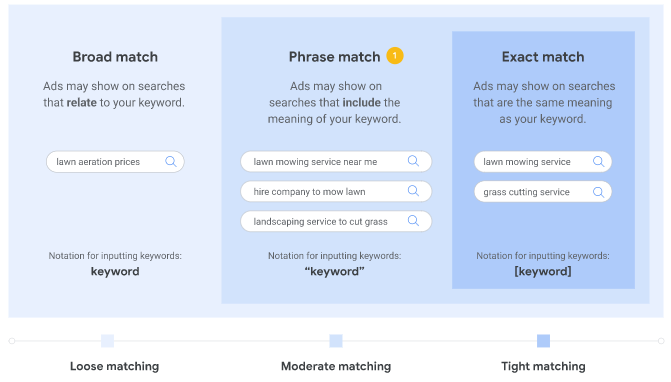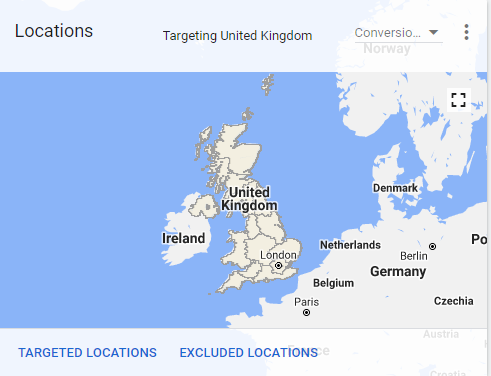The Good, the Bad and the Ugly of Google Ads
The Most Common Beginner Mistakes to Avoid - and What to Do Instead
Published on Wednesday, May 26th 2021 by Viki Nagy

One of my clients once said that setting up a Google Ads campaign is like gambling. Every time he presses ‘start’, he would just anxiously stare at the dashboard as it was a roulette wheel in a casino.
This analogy always makes me smile, although this is exactly how most people feel when starting their first Google Ads campaign.
Not surprisingly. Google Ads is a very powerful tool but also one of the most challenging ones. It takes a great deal of practice to master it, and it’s easy to waste a great sum of money in the meantime.
To save you some headache, I’ve made a list of the top 5 beginner mistakes.
1. Using vague ad groups
If I had £1 every time I saw this mistake, you wouldn’t be reading this because I’d be sipping Piña Coladas on my private yacht right now.
Many beginner users are guilty of creating one generic ad group for their entire business and stuffing it with all different keywords for every service they offer. This results in a low ad relevance, low click-through rate and consequently a low conversion rate. For the simple reason that people expect to find exactly and only what they’re searching for.
Each of your ads needs to be specific to one service. Remember: mixed messages are a big no-no in dating, and so are they in pay per click advertising.
Let’s see an example. If I have a hair salon, I should run a different ad group for each type of hairdressing service I offer. Putting “balayage ombre” and “pixie cut” keywords in the same ad group will not do me any favours.
2. Using broad match keywords
Broad match keywords are the second most evil things straight after the 5-day workweek. Some digital marketers say you shouldn’t use only broad match keywords in a campaign. I’ll be a little more dramatic and say that you should forget about them altogether.
Every time someone tells me that “they’ve burst their entire budget with no results”, broad match keywords are my prime suspects in the case.
Unfortunately, this is the default match type in Google Ads, and inexperienced users don’t change it. This can be a costly mistake because the little bastards will attract any search term that’s ’broadly’ similar to our keyword.
This is the PPC equivalent of inviting the whole neighbourhood over to our house saying it’s all on us. We’re simply exposing our ads to people who are not even looking for our service, ending up spending our daily budget on irrelevant traffic.
I would suggest using only phrase match keywords and a few exact matches. The bottom line is to banish broad match keywords from your life for good. (I wish we could do that to the 5-day workweek too.)

3. Not using negative keywords
Here’s another analogy. If broad match keywords were a person, they would be that one friend at a night out who keeps persuading us to get another round of shots for their friends’ cousins’ friends’ table. Then we look at our bank account the next day, realising how much money we spent on drinks for people we don’t even know who they were.
Negative keywords, on the other hand, would be our ‘always responsible’ friend. The one who makes sure that we don’t forget our wallet on the bar counter when ordering. Negative keywords are one of the most vital tools to reduce the amount of money we waste. To put it simply: whatever we set as a negative keyword will prevent Google from showing our ad if a user searches on it.
Let’s say I still have a hair salon, and I offer professional hair colouring. One of my keywords may be “hair colouring”. The problem is that some people who search on that keyword are looking to dye their hair at home, and they’re not interested in my service. This is where negative keywords come to save the day. We can simply put some search terms on a ‘blacklist’, such as “hair colouring at home”, “box hair dye”, etc. This way we can eliminate those users who are not looking for a salon service. Honestly, use negative keywords. I can’t stress enough how important they are.
4. Not using location targeting
In our globalised world, some people tend to forget about location targeting completely.
I’ve seen numerous dentists and butchers advertising their services nationwide. But my favourite one was probably the MOT service station running their PPC campaign worldwide.
I don’t even need to explain the problem here. If I advertise my Blackpool MOT station worldwide, the ads will, well… show up worldwide. And there’s absolutely nothing that stops someone in India or Mexico from clicking on my ad. Chances are, though, they won’t book their cars in for a full service.
Don’t get me wrong, some services do benefit from targeting globally. But if your business only operates within a certain geographical region, don’t forget to use the specific location targeting to avoid wasting money on people who can’t access your services.

5. Underestimating how lazy people are
This is probably the biggest – and most common – mistake, even amongst digital marketers. (Ironically, mostly due to our own laziness.)
This point briefly connects to the first one where I said users expect to find exactly what they’re searching for. This, however, does not only apply to the advert they see but also the landing page they arrive at.
Creating a different landing page for each product or service is a time-consuming task and - let’s be honest - we all hate to do it. But we really should. We need to make sure that our website has a very specific landing page for every ad we run, and it completely answers what the user is searching for without having to click elsewhere.
There must be an accurate description of the advertised service and a “contact us” button directly below it (so the users don’t need to look for the contact page). What you need to remember is that website visitors’ average attention span is 6-8 seconds, so this is all the time for you to shine. There’s one thing you should never do; never send all your traffic to your home page.

I hope you find these points helpful with your campaign building. But please don’t panic if your campaign doesn’t perform well for the first time. As I said, Google Ads is a very complex platform, and the most important thing to do is keep testing things to see what works and what doesn’t.
However, if you feel like it’s all too daunting, feel free to give us a shout, and we will do the hard work for you.
Drop us an email here if you need help with your Google Ads campaigns.
We are Webbed Feet; we are certified Google Partners.

